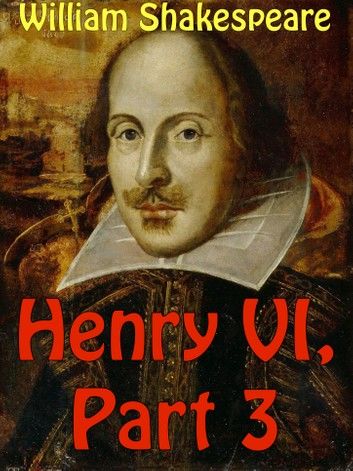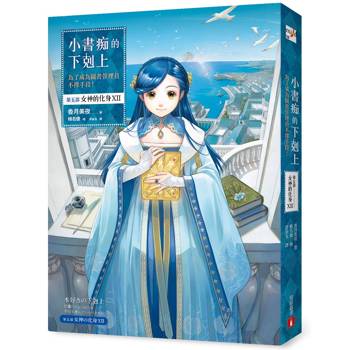| FindBook |
有 1 項符合
Henry VI, Part 3的圖書 |
 |
Henry VI, Part 3 作者:William Shakespeare 出版社:Castrovilli Giuseppe 出版日期:2014-01-21 語言:英文 |
| 圖書館借閱 |
| 國家圖書館 | 全國圖書書目資訊網 | 國立公共資訊圖書館 | 電子書服務平台 | MetaCat 跨館整合查詢 |
| 臺北市立圖書館 | 新北市立圖書館 | 基隆市公共圖書館 | 桃園市立圖書館 | 新竹縣公共圖書館 |
| 苗栗縣立圖書館 | 臺中市立圖書館 | 彰化縣公共圖書館 | 南投縣文化局 | 雲林縣公共圖書館 |
| 嘉義縣圖書館 | 臺南市立圖書館 | 高雄市立圖書館 | 屏東縣公共圖書館 | 宜蘭縣公共圖書館 |
| 花蓮縣文化局 | 臺東縣文化處 |
|
|
Henry VI, Part 3 (often written as 3 Henry VI) is a history play by William Shakespeare believed to have been written in 1591, and set during the lifetime of King Henry VI of England. Whereas 1 Henry VI deals with loss of England's French territories and the political machinations leading up to the Wars of the Roses, and 2 Henry VI focuses on the King's inability to quell the bickering of his nobles, and the inevitability of armed conflict, 3 Henry VI deals primarily with the horrors of that conflict, with the once ordered nation thrown into chaos and barbarism as families break down and moral codes are subverted in the pursuit of revenge and power. Although the Henry VI trilogy may not have been written in chronological order, the three plays are often grouped together with Richard III to form a tetralogy covering the entire Wars of the Roses saga, from the death of Henry V in 1422 to the rise to power of Henry VII in 1485. It was the success of this sequence of plays which firmly established Shakespeare's reputation as a playwright. Henry VI, Part 3 features the longest soliloquy in all of Shakespeare (3.2.124–195), and has more battle scenes (four on stage, one reported) than any other of Shakespeare's plays.
The play begins where 2 Henry VI left off, with the victorious Yorkists (York, Edward, Richard, Warwick, Montague [i.e. Salisbury] and Norfolk) pursuing Henry and Margaret from the battlefield in the wake of the First Battle of St Albans. Upon reaching the parliamentary chambers in London, York seats himself in the throne, and a confrontation ensues between his supporters and Henry's. Threatened with violence by Warwick, who has brought part of his army with him, the King reaches an agreement with York which will allow him to remain king until his death, at which time the throne will permanently pass to the House of York and its descendants. Disgusted with this decision, which would disinherit the King's son, Prince Edward, the King's supporters, led by his wife, Margaret, abandon him, and Margaret declares war on the Yorkists, supported by Clifford, who is determined to exact revenge for the death of his father at the hands of York during the battle of St Albans.
Margaret attacks York's castle at Wakefield, and the Yorkists lose the ensuing battle. During the conflict, Clifford murders York's twelve-year-old son, Rutland. Margaret and Clifford then capture and taunt York himself; forcing him to stand on a molehill, they give him a handkerchief covered with Rutland's blood to wipe his brow, and place a paper crown on his head, before stabbing him to death. After the battle, as Edward and Richard lament York's death, Warwick brings news that his own army has been defeated by Margaret's at the Second Battle of St Albans, and the King has returned to London, where, under pressure from Margaret, he has revoked his agreement with York. However, George Plantagenet, Richard and Edward's brother, has vowed to join their cause, having been encouraged to do so by his sister, the Duchess of Burgundy. Additionally, Warwick has been joined in the conflict by his own younger brother, Montague.
The Yorkists regroup, and at the Battle of Towton, Clifford is killed and the Yorkists are victorious. Following the battle, Edward is proclaimed king, George is proclaimed Duke of Clarence and Richard, Duke of Gloucester, although he complains to Edward that this is an ominous dukedom. King Edward and George then leave the court, and Richard reveals to the audience his ambition to rise to power and take the throne from his brother, although as yet he is unsure how to go about it.
After Towton, Warwick goes to France to secure for Edward the hand of Louis XI's sister-in-law, Lady Bona, thus ensuring peace between the two nations by uniting in marriage their two monarchies. Warwick arrives at the French court to find that Margaret, Prince Edward and the Earl of Oxford have come to Louis to seek his aid in the conflict in England. Just as Louis is about to agree to supply Margaret with troops, Warwick intervenes, and convinces Louis that it is in his interests to support Edward and approve the marriage. Back in England, however, the recently widowed Lady Grey (Elizabeth Woodville) has come to King Edward requesting her late husband's lands be returned to her. Rather than granting her suit, however, captivated by her beauty Edward marries her, against the advice of both George and Richard. Upon hearing of this, feeling he has been made to look a fool despite service to the House of York, Warwick denounces Edward, and switches allegiance to the Lancastrians, promising his daughter Anne's hand in marriage to Prince Edward as a sign of his loyalty. Shortly thereafter, George and Montague also defect to the Lancastrians. Warwick then invades England with French troops, and Edward is taken prisoner. Henry is restored to the throne, and appoints Warwick and George as his Lord Protectors.
Soon thereafter, however, Edward is rescued by Richard, Hastings and Stanley. News of the escape reaches Henry's court, and the young Earl of Richmond is sent into exile in France for safety. Richmond is a descendant of John of Gaunt, uncle of Richard II and son of Edward III, and therefore a potential Lancastrian heir should anything happen to Henry and his son; hence the need to protect him. Meanwhile, Edward reorganises his forces, and confronts Warwick's army. At the Battle of Barnet, George betrays Warwick, and rejoins the Yorkists. This throws Warwick's forces into disarray, and the Yorkists win the battle, during which both Warwick and Montague are killed. Oxford and the Duke of Somerset now assume command of the Lancastrian forces, and join a second battalion newly arrived from France led by Margaret and Prince Edward. Meanwhile, Henry sits on the molehill York was on and laments his problems. He is met by a father who has killed his son, and a son who has killed his father, representing the horrors of the civil war. Henry is captured by two gamekeepers loyal to Edward, and imprisoned in the Tower of London, while Edward goes to meet the Lancastrian/French force. In the subsequent Battle of Tewkesbury the Yorkists rout the Lancastrians, capturing Margaret, Prince Edward, Somerset and Oxford. Somerset is sentenced to death, Oxford to life imprisonment, Margaret is banished, and Prince Edward is stabbed to death by the three Plantagenet brothers, who fly into a rage after he refuses to recognise the House of York as the legitimate royal family. At this point, Richard goes to London to kill Henry. At Richard's arrival at the Tower, the two argue, and in a rage Richard stabs Henry. With his dying breath, Henry prophesies Richard's future villainy and the chaos that will engulf the country. Back at court, Edward orders celebrations to begin, believing the civil wars are finally over and lasting peace is at hand. He is unaware, however, of Richard's scheming and his desire for power at any cost.
|









